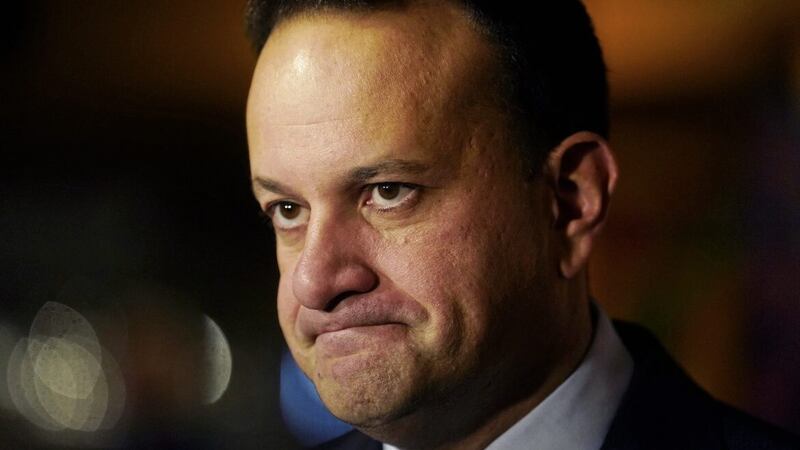THERE are few things more fascinating in public life than watching politicians trying to solve a problem of their own making.
It becomes particularly entertaining when they decide (or someone decides for them) that living with the problem is more politically fashionable than finding a solution.
Welcome to the world of Leo Varadkar.
On Monday the taoiseach backed down on the protocol, a post-Brexit trade agreement which he helped to create. With wonderful understatement, he said that perhaps the protocol was “a little bit too strict”.
He presumably meant, among other things, that customs checks on goods between GB and here were a case of political ambition overcoming common sense.
On Wednesday, following a positive reaction to his announcement from the DUP and the British government, his spokesperson said that he did not really mean what he said on Monday. What he meant instead was that the “issue of flexibility is an important one”, but that nothing had changed in terms of the protocol.
Presumably his words did not go down well in Brussels, where most Irish government policy is made these days.
So how did Leo get into this mess and how might he get out of it?
Monday’s announcement came five years after he reversed his predecessor Enda Kenny’s policy that Irish civil servants should regard Brexit as a technical, not a political issue. Kenny would co-operate with Britain and Stormont in "the same spirit of partnership which underpinned the peace process".
However, the EU wanted to punish Britain for Brexit and they found a willing ally in Mr Varadkar.
He appears to have adopted John Redmond’s 1914 belief that Ireland’s role should be in the service of others. (Redmond served Britain. Varadkar served Brussels.)
Like Redmond, Mr Varadkar dressed foreign interests in Irish nationalist clothing: “No Irish government will ever again leave northern nationalists behind.”
Sinn Féin welcomed his comment, thereby abandoning their original position (also adopted by this column) of seeking special status for the north.
The SDLP later said that "the EU will not sacrifice the interests of Ireland”. Their words echoed Redmond’s 1914 speech, when he urged Irishmen to join the British army, saying, “The interests of Ireland are at stake.”
(You might like to while away the long winter nights by wondering what exactly “the interests of Ireland” are and who should determine them.)
At an EU dinner in 2018, Mr Varadkar produced a newspaper cutting about an IRA bomb in a Newry customs station in 1972 which killed nine people. He argued that Brexit could lead to more republican violence if there were trade restrictions along the border.
It was an ironic gesture, because the only threat of post-Brexit violence so far has come from loyalists, often directed at Mr Varadkar.
Sinn Féin, which presumably supported the 1972 bombing (at a time when it opposed Ireland’s EU membership) constructed walls of polystyrene blocks on the border and knocked them down for the gratification of visiting EU dignitaries. No-one mentioned that SF had agreed to the border in the Good Friday Agreement.
So we assumed on Monday that Leo recognised that the protocol had effectively collapsed Stormont and he was trying to patch things up with unionism prior to his visit to the north next week. It would also positively herald the 25th anniversary of the Good Friday Agreement (and a possible US presidential visit).
Changing the protocol (or diluting it and changing its name) could have forced the DUP back into the Executive. That now looks unlikely. For the EU, humiliating Britain appears more important than restoring Stormont.
So on Wednesday Leo told unionists and London that the Monday Leo was a mirage. He did a u-turn on his u-turn and finished up back where he started.
He had been taoiseach for a day (Tuesday) before being relegated again to the status of Brussels messenger boy.
Perhaps his explanation for history will be that he was only following orders.








